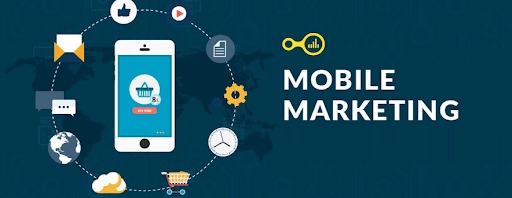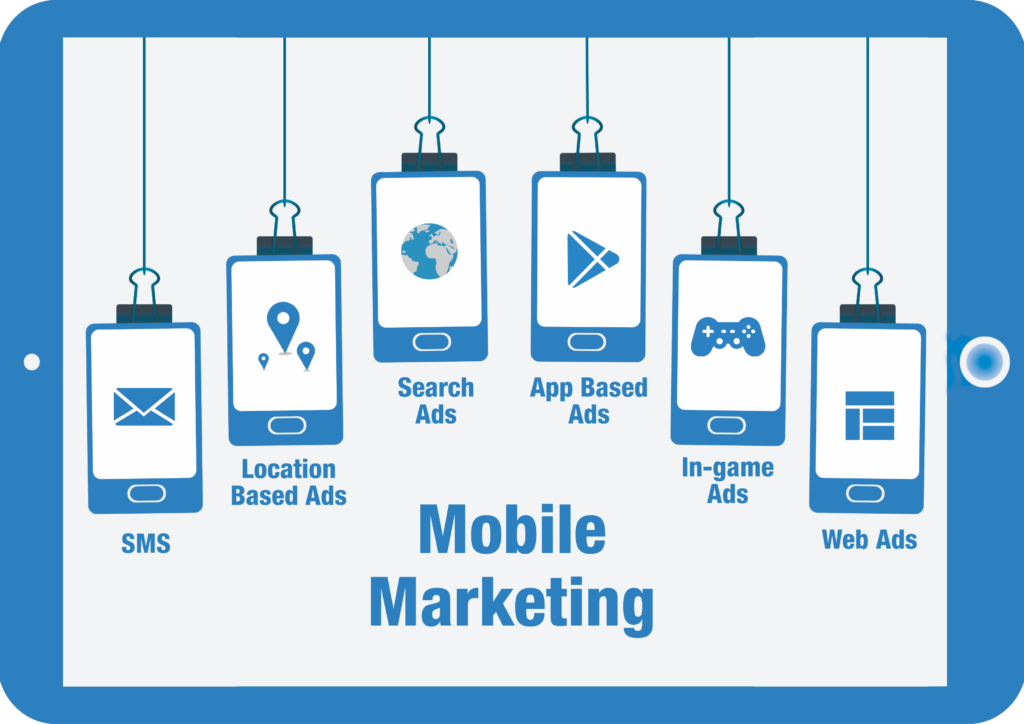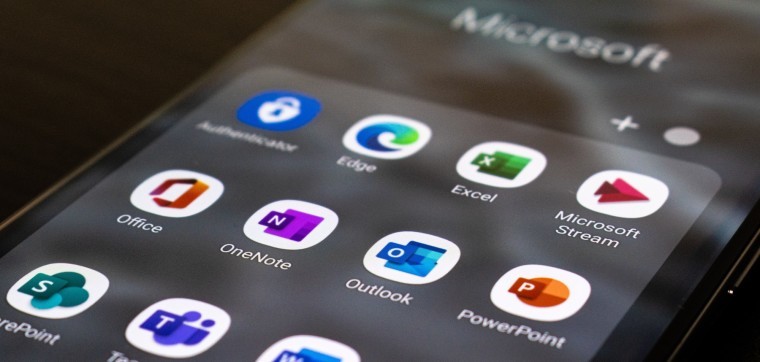
Mobile devices have become an integral part of our daily lives in the digital age. From checking emails and social media to shopping and entertainment, smartphones and tablets are now ubiquitous. This shift has significant implications for businesses, particularly in internet marketing. As an internet marketing consultant, understanding and leveraging mobile marketing is crucial to achieving success for clients. This blog explores the role of mobile marketing in internet marketing consulting, covering its importance, strategies, tools, challenges, and future trends.
The Importance of Mobile Marketing
Ubiquity of Mobile Devices
The proliferation of mobile devices is one of the most significant technological trends of the past decade. According to Statista, as of 2023, there are over 6.8 billion smartphone users worldwide, representing nearly 85% of the global population. This widespread adoption of mobile technology has transformed how consumers interact with brands and access information.
1) Changing Consumer Behavior
Mobile devices have changed consumer behavior in several ways:
- Instant Access: Consumers can access information, products, and services anytime and anywhere.
- Personalization: Mobile devices allow for highly personalized experiences tailored to individual preferences and behaviors.
- Social Connectivity: Mobile devices enable constant connectivity to social networks, influencing purchase decisions and brand perceptions.
- Multichannel Engagement: Consumers often use multiple channels (e.g., mobile apps, social media, websites) simultaneously, creating opportunities for integrated marketing strategies.
2) Mobile-First Approach
Given the dominance of mobile usage, businesses must adopt a mobile-first approach to their marketing strategies. This means designing marketing campaigns and content with mobile users as the primary audience. A mobile-first approach ensures the user experience is optimized for smaller screens and touch interfaces, leading to better engagement and conversions.
Mobile Marketing Strategies
1) Mobile-Friendly Websites
A mobile-friendly website is essential for any business. Key aspects of a mobile-friendly website include:
- Responsive Design: A responsive design automatically adjusts the layout and content to fit different screen sizes and orientations.
- Fast Loading Speed: Mobile users expect quick access to information. Optimizing images, reducing server response time, and leveraging browser caching can improve loading speeds.
- Simplified Navigation: Mobile navigation should be intuitive and easy to use, with clear menus and buttons.
- Readable Content: Ensure that text is readable without zooming and that buttons and links are easily clickable.
2) Mobile Apps
Mobile apps offer a direct channel for engaging with customers. Benefits of mobile apps include:
- Enhanced User Experience: Apps provide a more streamlined and immersive experience than mobile websites.
- Push Notifications: Apps can send push notifications to engage users with timely updates, offers, and reminders.
- Offline Access: Apps can provide certain functionalities even without an internet connection.
- Data Collection: Apps can collect valuable user data, enabling personalized marketing and improved decision-making.
3) SMS and MMS Marketing
SMS (Short Message Service) and MMS (Multimedia Messaging Service) marketing are effective ways to reach customers directly on their mobile devices. Strategies include:
- Promotional Offers: Send exclusive deals and discounts to encourage immediate action.
- Reminders: Use SMS/MMS for appointment reminders, event notifications, and order updates.
- Surveys and Feedback: Collect customer feedback through quick and easy surveys.
- Loyalty Programs: Implement loyalty programs that reward customers for their engagement and purchases.
4) Mobile Advertising
Mobile advertising encompasses various formats, including:
- Display Ads: Banner ads, interstitial ads, and native ads that appear within mobile apps or websites.
- Video Ads: Short, engaging video ads that capture user attention.
- Social Media Ads: Ads are placed on platforms like Facebook, Instagram, and TikTok, where users spend significant amounts of time.
- Search Ads: Paid search ads that appear on mobile search engines.
5) Location-Based Marketing
Location-based marketing leverages GPS and location data to deliver personalized and relevant content to users based on their physical location. Strategies include:
- Geofencing: Creating a virtual boundary around a specific area and triggering ads or notifications when users enter or exit the area.
- Proximity Marketing: Using Bluetooth beacons or NFC (Near Field Communication) to send targeted messages to users near a physical store or event.
- Local Search Optimization: Ensure your business appears in local search results and maps to attract nearby customers.
6) Mobile Wallet Marketing
Mobile wallet marketing involves using mobile wallet apps like Apple Wallet or Google Wallet to engage customers. Strategies include:
- Digital Coupons: Offer digital coupons that customers can save and use directly from their mobile wallets.
- Loyalty Cards: Implement digital loyalty cards that track customer purchases and rewards.
- Event Tickets: Distribute event tickets through mobile wallets for easy access and updates.
Tools and Technologies for Mobile Marketing
1) Mobile Analytics
Mobile analytics tools provide insights into user behavior and campaign performance. Key metrics include:
- App Downloads and Usage: Track the number of app downloads and user engagement within the app.
- In-App Purchases: Monitor purchases made within the app.
- User Retention: Measure how often users return to the app after downloading.
- Crash Reports: Identify and fix issues causing app crashes.
Popular mobile analytics tools include Google Analytics for Mobile Apps, Flurry, and Mixpanel.
2) Mobile CRM
Mobile Customer Relationship Management (CRM) systems help businesses manage customer interactions on mobile devices. Features include:
- Contact Management: Store and organize customer contact information.
- Communication Tracking: Track customer interactions across various channels, including SMS, email, and social media.
- Segmentation: Segment customers based on behavior and preferences for targeted marketing.
- Sales Automation: Automate sales processes and follow-ups to improve efficiency.
Popular mobile CRM tools include Salesforce Mobile, Zoho CRM, and HubSpot CRM.
3) Mobile Marketing Automation
Mobile marketing automation tools streamline and automate marketing tasks, enabling businesses to deliver personalized experiences at scale. Features include:
- Behavioral Triggering: Send messages or offers based on user behavior, such as app usage or website visits.
- A/B Testing: Test different versions of messages or ads to determine which performs better.
- Campaign Management: Manage and track the performance of mobile marketing campaigns.
- Personalization: Deliver personalized content based on user preferences and behavior.
Popular mobile marketing automation tools include Braze, Leanplum, and Airship.
4) Mobile Payment Solutions
Mobile payment solutions facilitate seamless transactions on mobile devices. Features include:
- One-Click Payments: Enable customers to make purchases with a single click.
- Digital Wallet Integration: Integrate with digital wallets like Apple Pay, Google Pay, and Samsung Pay.
- Secure Transactions: Ensure transactions are secure with encryption and fraud detection.
Popular mobile payment solutions include Stripe, Square, and PayPal.
Challenges in Mobile Marketing
1) Privacy and Security Concerns
Mobile marketing involves collecting and using personal data, which raises privacy and security concerns. Key challenges include:
- Data Protection: Ensuring that customer data is stored and transmitted securely.
- Compliance: Adhering to GDPR (General Data Protection Regulation) and CCPA (California Consumer Privacy Act) regulations.
- Transparency: Providing clear information about data collection and usage practices to customers.
2) Ad Blocking
Ad blocking is a growing challenge in mobile marketing. Users can install ad blockers to prevent ads from appearing on their devices, reducing the effectiveness of mobile advertising campaigns. Strategies to mitigate this challenge include:
- Non-Intrusive Ads: Create non-intrusive and relevant ads that provide value to users.
- Native Advertising: Use native ads that blend seamlessly with the content and are less likely to be blocked.
- Content Marketing: Focus on content marketing strategies that engage users without relying on traditional ads.
3) Fragmentation
The mobile ecosystem is highly fragmented, with many devices, operating systems, and screen sizes. This fragmentation presents challenges in delivering a consistent and optimized user experience. Strategies to address fragmentation include:
- Responsive Design: Implement responsive design principles to ensure compatibility across devices and screen sizes.
- Cross-Platform Development: Use cross-platform development tools to create apps that work on multiple operating systems.
- Testing: Conduct thorough testing on various devices and operating systems to identify and fix issues.
4) Measuring ROI
Measuring mobile marketing campaigns’ return on investment (ROI) can be challenging due to the complexity of tracking user behavior across multiple channels and devices. Strategies to measure ROI include:
- Attribution Modeling: Use attribution models to understand the contribution of different channels and touchpoints to conversions.
- Unified Analytics: Implement unified analytics solutions that track user behavior across web, mobile, and offline channels.
- KPIs: Define clear key performance indicators (KPIs) and track them consistently to measure campaign performance.
Future Trends in Mobile Marketing
1) 5G Technology
The rollout of 5G technology promises to revolutionize mobile marketing by providing faster and more reliable internet connections. Key benefits include:
- Enhanced User Experience: Faster download and upload speeds enable more prosperous and immersive experiences.
- Real-Time Data: Improved latency allows for real-time data collection and analysis, enabling more timely and relevant marketing.
- Innovative Formats: With 5 G, new advertising formats, such as augmented reality (AR) and virtual reality (VR), become more feasible.
2) Artificial Intelligence and Machine Learning
Artificial intelligence (AI) and machine learning (ML) transform mobile marketing by enabling more personalized and efficient campaigns. Applications include:
- Predictive Analytics: Use AI to predict user behavior and preferences for more targeted marketing.
- Chatbots: Implement AI-powered chatbots to provide instant customer support and engage users.
- Content Personalization: Use ML algorithms to deliver personalized content and recommendations.
3) Augmented Reality (AR) and Virtual Reality (VR)
AR and VR technologies create new opportunities for engaging and immersive mobile marketing experiences. Applications include:
- Interactive Ads: Create interactive ads that allow users to engage with products in a virtual environment.
- Virtual Try-Ons: Enable users to try on products virtually, such as clothing or makeup, using AR.
- Virtual Tours: Provide virtual tours of physical locations, such as stores or real estate properties.
4) Voice Search
Voice search is becoming increasingly popular, with devices like smartphones, smart speakers, and wearables enabling users to search using their voice. Implications for mobile marketing include:
- Voice SEO: Optimize content for voice search queries to improve visibility in search results.
- Voice Commerce: Enable voice-activated purchases and transactions.
- Conversational Marketing: Develop conversational marketing strategies that leverage voice assistants and chatbots.
Mobile marketing plays a crucial role in internet marketing consulting, offering numerous opportunities to engage and convert customers in a mobile-first world. By adopting a mobile-first approach, leveraging the right strategies and tools, and staying ahead of emerging trends, internet marketing consultants can help businesses thrive in the digital age. While privacy concerns, ad blocking, and fragmentation exist, they can be mitigated with careful planning and execution. As technology continues to evolve, the future of mobile marketing promises even more innovative and impactful ways to connect with customers and drive business success.



